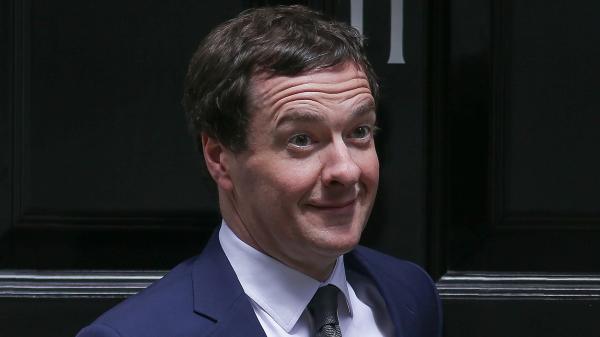
Noonan soothes fears over Osborne’s corporation tax pledge
Michael Noonan has moved to calm fears over the British chancellor’s pledge to cut corporate tax rate, claiming that the move was expected.
George Osborne announced on Sunday a plan to reduce corporate tax from 20 per cent to below 15 per cent to attract foreign investment as part of a series of measures to cushion against the impact of Brexit.
“Obviously the United Kingdom will no longer have access to a market with over 500 million people,” Mr Noonan said. “They will have to take measures to protect their own interests.
“It is not as dramatic as it might appear because two years ago he [Mr Osborne] announced the principle of bringing the corporate tax rate down and he said it would be 17 per cent by 2020, so 15 per cent or less is not a million miles away from what was indicated already.”
The Stormont executive reached an agreement with Westminster last year to lower the tax rate in Northern Ireland to 12.5 per cent by 2018. Mr Noonan said that a move to slash the UK rate to below 15 per cent would have greater implications for the North.
“It is the comparative tax rate rather than the actual tax rate that drives foreign direct investment. So if the rate in England, Scotland and Wales is below 15 per cent, there isn’t much of an advantage for Northern Ireland. If you were going to invest in the UK, I don’t think you would switch from the mainland to Northern Ireland for the sake of 1.5 per cent to 2 per cent.”
Mairtin O’Muilleoir, the Stormont finance minister, said in a statement yesterday that he would discuss the chancellor’s proposal with him in forthcoming face-to-face negotiations.
“It is my intention to bring a report to the [Northern Ireland] executive on the corporation tax options post-EU referendum and following the latest announcement,” he said.
“I remain committed to devolving corporation tax powers from London.
“There has been a dramatic change in circumstances since the referendum but it remains my contention that we can do a better job for our people with the devolution of more fiscal powers. Of course, access to the European market and free cross-border trade are essential to our future.”
Michael McGrath, the Fianna Fail finance spokesman, said that Ireland needed to improve its competitiveness and enhance its tax system in light of Mr Osborne’s announcement.
“There is certainly no need for Ireland to panic,” he said. “It was made in the context of growing worries about the UK economy and comes at a time of deep political turmoil following the Brexit vote. However, we cannot be complacent and we must not take our strong performance in attracting inward investment for granted.
“Our corporation tax regime plays a vital role in attracting such jobs to Ireland and we must take action to remain competitive in the years ahead.”
Mr Noonan said that so far the Irish economy had withstood the headwinds caused by the Brexit vote. Irish borrowing costs fell to record lows last week after emergency measures put in place by the European Central Bank to smooth over potential funding problems caused by the Brexit vote.
There had been no discernible disruption to trade between the UK and Ireland, Mr Noonan added. “But of course the big issue is what the settlement will be between the UK and the EU. If the single market is preserved in its totality or something close to it, then it will not affect Ireland very much.”
Mr Noonan said it is not possible to quantify the impact on Ireland if there was a failure to reach agreement between the EU and the UK, although he said that it would not affect the 2017 budget.

